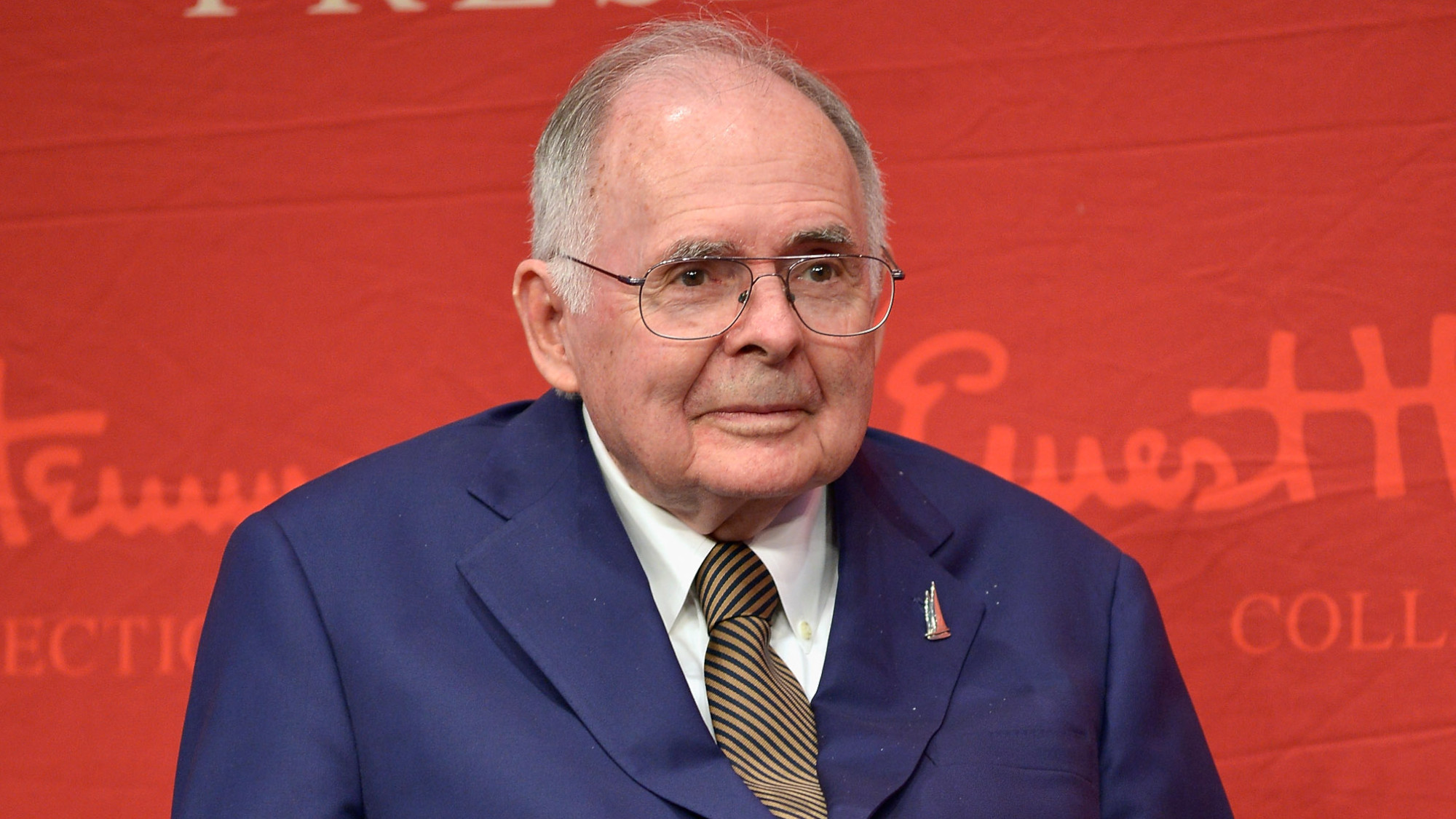Levi Stubbs
The soulful baritone who helped define the Motown sound
A free daily email with the biggest news stories of the day – and the best features from TheWeek.com
You are now subscribed
Your newsletter sign-up was successful
The soulful baritone who helped define the Motown sound
Levi Stubbs
1936–2008
The Week
Escape your echo chamber. Get the facts behind the news, plus analysis from multiple perspectives.

Sign up for The Week's Free Newsletters
From our morning news briefing to a weekly Good News Newsletter, get the best of The Week delivered directly to your inbox.
From our morning news briefing to a weekly Good News Newsletter, get the best of The Week delivered directly to your inbox.
Levi Stubbs, whose yearning, soulful baritone as lead singer of the Four Tops was perhaps the most distinctive voice of Motown’s golden era, led the group to international fame with its tumultuous 1966 recording of “Reach Out (I’ll Be There).” With its incessant rhythm, symphonic arrangement, and Stubbs’ unforgettable plea, the song provided Motown with one of its first No. 1 hits on both sides of the Atlantic. It also provided the quartet with a musical recipe for success that lasted for more than a decade.
Born Levi Stubbles in Detroit, Stubbs formed a singing duo with a friend, Abdul “Duke” Fakir, in high school, said the London Independent. In 1953, they met Lawrence Payton and Renaldo “Obie” Benson, and recast themselves as the Four Aims. Performing on the jazz and R&B circuit, they worked with such artists as Count Basie and Jackie Wilson. After signing with Chess Records, Levi changed his name to Stubbs and the group adopted a new name, the Four Tops, “to avoid confusion with the Ames Brothers.”
Moving to New York in the mid-1950s, said The New York Times, the four were sharing a studio apartment when Jack Paar invited them onto The Tonight Show. Berry Gordy Jr., founder of the Motown label, saw their jazz rendition of “In the Still of the Night,” signed the group and assigned a songwriting team “to shape their sound.” The Four Tops released “Baby, I Need Your Loving” a year later, followed by two No. 1 hits—“I Can’t Help Myself,” in 1965, and “Reach Out,” in 1966. Written in the tenor range, the songs pushed Stubbs’ “voice higher and made it sound urgent and pleading.”
Stubbs initially disliked “Reach Out” and wanted another Top to sing the lead, said the London Guardian. Yet it was only his voice that could capture the necessary “masculinity in crisis” of the lyrics. The Four Tops continued to tour the cabaret circuit both in the U.S. and around the world in the 1970s and ’80s, often with the Temptations. Though Stubbs declined several movie roles, he did supply the voice of the man-eating plant in the 1986 version of Little Shop of Horrors. In that role, Stubbs said, “the plant starts out sorta sweet and kind, then gets sly and devious and mean. I thought about it some. In the music business, you have quite a few people like that, so I put those people in my mind.”
A free daily email with the biggest news stories of the day – and the best features from TheWeek.com
The Four Tops were inducted into the Rock and Roll Hall of Fame in 1990. Stubbs, who stopped performing in 2000 after a series of illnesses, including a stroke and cancer, died at home in his sleep.
-
 The ‘ravenous’ demand for Cornish minerals
The ‘ravenous’ demand for Cornish mineralsUnder the Radar Growing need for critical minerals to power tech has intensified ‘appetite’ for lithium, which could be a ‘huge boon’ for local economy
-
 Why are election experts taking Trump’s midterm threats seriously?
Why are election experts taking Trump’s midterm threats seriously?IN THE SPOTLIGHT As the president muses about polling place deployments and a centralized electoral system aimed at one-party control, lawmakers are taking this administration at its word
-
 ‘Restaurateurs have become millionaires’
‘Restaurateurs have become millionaires’Instant Opinion Opinion, comment and editorials of the day
-
 Catherine O'Hara: The madcap actress who sparkled on ‘SCTV’ and ‘Schitt’s Creek’
Catherine O'Hara: The madcap actress who sparkled on ‘SCTV’ and ‘Schitt’s Creek’Feature O'Hara cracked up audiences for more than 50 years
-
 Bob Weir: The Grateful Dead guitarist who kept the hippie flame
Bob Weir: The Grateful Dead guitarist who kept the hippie flameFeature The fan favorite died at 78
-
 Brigitte Bardot: the bombshell who embodied the new France
Brigitte Bardot: the bombshell who embodied the new FranceFeature The actress retired from cinema at 39, and later become known for animal rights activism and anti-Muslim bigotry
-
 Frank Gehry: the architect who made buildings flow like water
Frank Gehry: the architect who made buildings flow like waterFeature The revered building master died at the age of 96
-
 R&B singer D’Angelo
R&B singer D’AngeloFeature A reclusive visionary who transformed the genre
-
 Kiss guitarist Ace Frehley
Kiss guitarist Ace FrehleyFeature The rocker who shot fireworks from his guitar
-
 Robert Redford: the Hollywood icon who founded the Sundance Film Festival
Robert Redford: the Hollywood icon who founded the Sundance Film FestivalFeature Redford’s most lasting influence may have been as the man who ‘invigorated American independent cinema’ through Sundance
-
 Patrick Hemingway: The Hemingway son who tended to his father’s legacy
Patrick Hemingway: The Hemingway son who tended to his father’s legacyFeature He was comfortable in the shadow of his famous father, Ernest Hemingway